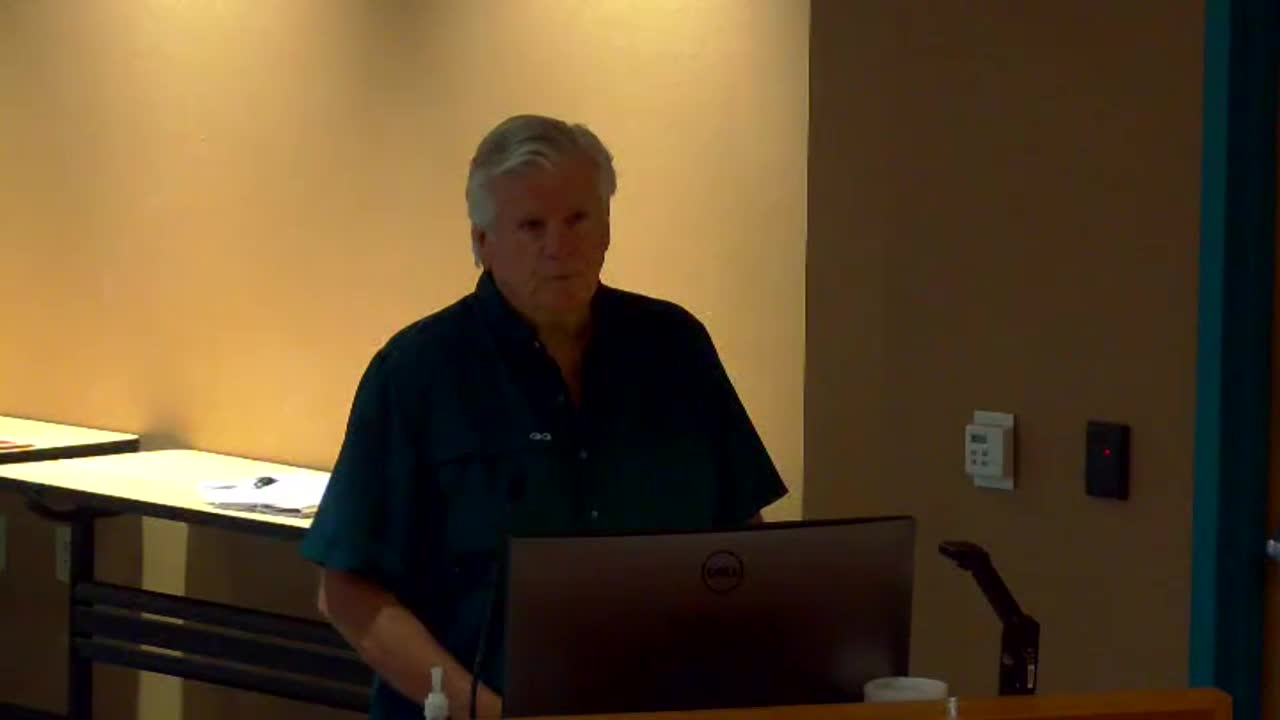Commission permits gravel in city right-of-way for Zapata property; inspector to require permits and increased fee for unpermitted work
Get AI-powered insights, summaries, and transcripts
Subscribe
Summary
The Planning and Zoning Commission approved Gabriel Zapata's request to allow gravel installation within the city right-of-way adjacent to his townhome property, contingent on permit processing; staff noted the city may assess increased permit fees for work performed without prior right-of-way approval.
On July 24, 2025, the South Padre Island Planning and Zoning Commission voted to allow Gabriel Zapata to install gravel in the city right-of-way adjacent to his newly constructed townhome property, with the condition that Zapata obtain the required permits and pay any applicable increased permit fees for work performed before permit issuance.
Zapata told the commission the gravel was necessary because rain had repeatedly turned the right-of-way area into a mud hazard that filled a nearby drain. He said he had attempted to stabilize the area by using a binding spray and temporary measures and asked the commission for permission to keep gravel along the side of the units.
Alex Sanchez, city staff, explained that staff has limited authority to approve work in the right-of-way and that the Planning and Zoning Commission must approve nonstandard installations such as gravel in the right-of-way. Sanchez said the site had a right-of-way permit associated with the construction but that the inspection found gravel in place instead of the grass indicated on approved plans; staff had held the certificate of occupancy pending resolution.
City staff and the building official, Filiberto Alba, confirmed the plans the city had on file showed tandem parking in earlier submittals and that revised plans reflecting changes to parking had not yet been formally submitted; Alba said the set of plans that arrived during the previous meeting remained the plans of record and that the city had not received later updated plans for formal review. (That parking/plans issue was discussed in the prior agenda item.)
Staff cited the city's fee policy: performing work in the right-of-way without a prior permit can trigger a higher permit fee (city staff cited a doubled fee or a flat administrative increase in some cases). Sanchez and other staff said the increased fee for unpermitted right-of-way work in this case would be applied as an elevated permit charge for the after-the-fact application; the precise amount would be set by the right-of-way permit process, but city staff identified a typical after-the-fact figure of about $250 in the course of the discussion.
A commissioner moved to approve the request; the motion was seconded and carried with a unanimous voice vote. The commission directed staff to process the required right-of-way permits, collect any increased permit fee applicable to after-the-fact work, and release the certificate of occupancy once the permit and inspections are complete.
